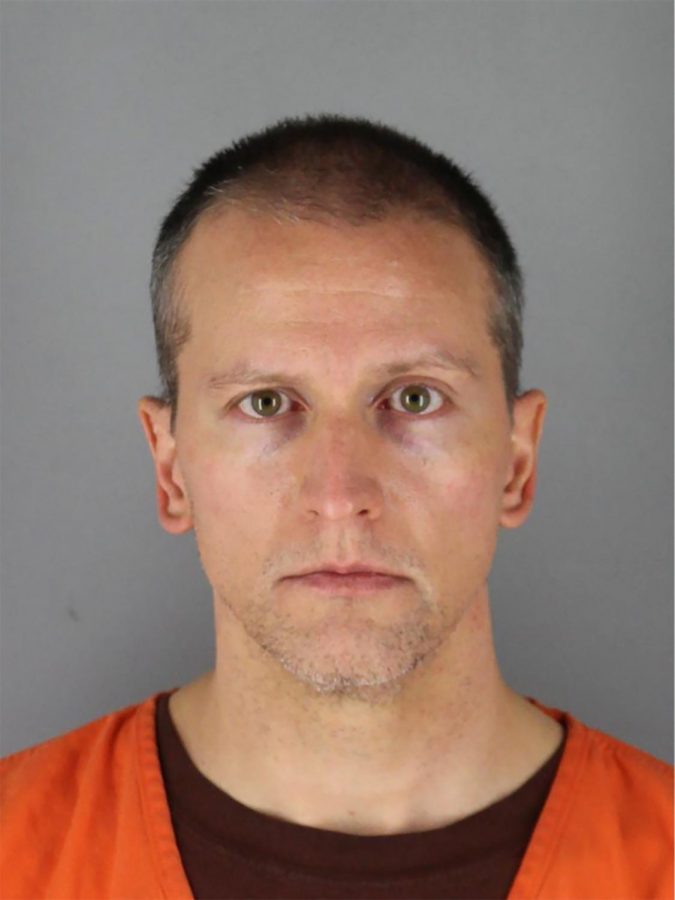George Floyd’s Killer, Derek Chauvin, Should Face Harsher Charges
George Floyd is now a household name not only in the United States but also worldwide, and for good reason. Floyd was killed on May 25, 2020, while in police custody. The officer responsible for his death, Derek Chauvin, is now on trial.
The judge in charge of this trial, Judge Peter Cahill, has rejected defense motions to not only postpone the trial but also to relocate the trial due to high publicity surrounding the case.
One week after this ruling, the city agreed to pay $27 million to George Floyd’s estate, “an announcement defense lawyer argued prejudiced their client in the middle of jury selection.” However, I would argue the opposite. This payout may, in the eyes of the jurors, seem as though George Floyd’s family has already received justice through monetary compensation. Yet this is not the case. Real justice will only come forth with the conviction of Derek Chauvin.
The charges Derek Chauvin is facing — manslaughter, second-degree murder and third-degree murder — are not adequate for what happened the day of George Floyd’s death. To show how these charges are not fit for the crime, I will first define each of them.
Manslaughter describes the death or killing as unintentional. Manslaughter refers solely to an act of reckless behavior.
Second-degree murder involves the same sort of definitive words as manslaughter- that this was an act of reckless behavior and a lack of concern for human life.
Third-degree murder outlines that the killing or death of the individual was executed without any intent to cause death by the accused.
For anyone who has watched the video of what took place, it is clear that Floyd’s murder was a completely intentional act. It was not just reckless behavior, but a purposeful act designated to harm George Floyd, and in the end, kill him. After all, the technique Chauvin used to keep Floyd on the ground — kneeling on his neck — is clearly designed to cut off a person’s oxygen supply.
Everyone can admit to acting recklessly at least once in their lives. A reckless act can be as common as going over the speed limit while driving. But this was not an act of “reckless” behavior. It was an intentional act performed with the intent to harm George Floyd.
I believe the fair charge of Derek Chauvin is first-degree murder, which is prosecuted in the state of Minnesota as “the death of a human being while committing, conspiring to commit, or attempting to commit a felony crime to further terrorism” and defines that “the death occurs under circumstances manifesting an extreme indifference to human life.”
Although there was no premeditation as far as we know, the inhumane murder of George Floyd by Derek Chauvin clearly displayed an extreme indifference to human life.
The sole fact that Chauvin is being tried under the umbrella of “reckless behavior” is absurd. There is nothing about kneeling on a man’s neck for eight minutes that implies not knowing or comprehending the consequences of that action. Chauvin committed an intentionally dangerous and harmful act and should be tried as such.
After George Floyd’s death, many bills were enacted, such as the Eric Garner Excessive Force Prevention Act, named after a man who was killed in 2014 after being choked by a white police officer. This act makes chokeholds and other oxygen-hindering maneuvers illegal under federal civil rights law.
The Restoration of Civil Rights Act would eliminate the “qualified immunity” defense. Qualified immunity has been used to allow immunity for law enforcement on a wide range of offenses, including excessive force by police officers.
The George Floyd Law Enforcement Trust and Integrity Act would mandate all local, state and federal law enforcers to report data to the Justice Department on uses of deadly force involving police officers and create a federal task force to coordinate the investigation and prosecution of law enforcement agencies.
As of now, there’s still a long way to go before justice is achieved for George Floyd. We’re on the right path, but this doesn’t mean that society should stop fighting for justice. Derek Chauvin must receive proper punishment for the unjust killing of George Floyd.
Cory Bork, FCRH ’23, is a communications and culture major from Robbinsville, N.J.

Cory Bork is a senior majoring in communication and culture with a minor in marketing. Beginning in his sophomore year, Cory wrote articles extensively...










































































































































































































